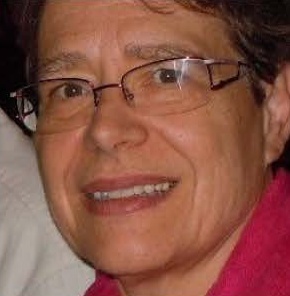
Giving Visibility to Peaceworkers

Chantal Grevin


Chantal Grevin
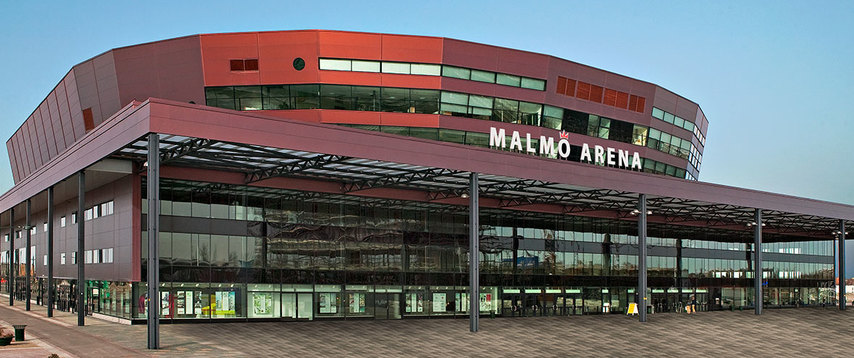 For the first time in 500 years Pope Francis, Bishop Munib Younana and General Secretary of the Lutheran World Federation, Rev Dr Martin Junge, will sign their names to the invitation for the 500th Anniversary of the Lutheran Reform in a highly significant gesture. Equally significant is the title that was chosen for the event: “From Conflict to Communion – Unity in Hope”. The event will be held on October 31st with an ecumenical service at the Cathedral of Lund, followed by a public ceremony at Malmö Stadium in Sweden. The Joint Declaration on the Doctrine of Justification (1999) was already a milestone for Catholic-Lutheran ecumenical dialogue, an important historical document that this year will serve as the theological basis the search of unity in the one Church of Christ. There has been a long history of friendship between the Focolare Movement and Lutherans. It was precisely the encounter with them that made Chiara Lubich realize that the spirituality that God had entrusted to her was not meant only for Roman Catholics.
For the first time in 500 years Pope Francis, Bishop Munib Younana and General Secretary of the Lutheran World Federation, Rev Dr Martin Junge, will sign their names to the invitation for the 500th Anniversary of the Lutheran Reform in a highly significant gesture. Equally significant is the title that was chosen for the event: “From Conflict to Communion – Unity in Hope”. The event will be held on October 31st with an ecumenical service at the Cathedral of Lund, followed by a public ceremony at Malmö Stadium in Sweden. The Joint Declaration on the Doctrine of Justification (1999) was already a milestone for Catholic-Lutheran ecumenical dialogue, an important historical document that this year will serve as the theological basis the search of unity in the one Church of Christ. There has been a long history of friendship between the Focolare Movement and Lutherans. It was precisely the encounter with them that made Chiara Lubich realize that the spirituality that God had entrusted to her was not meant only for Roman Catholics.  The history: On January 14, 1961, Chiara Lubich had been invited to speak about the spirituality of unity to the Lutheran Sisterhood of Mary. Among the listeners were several Lutheran pastors, including Klaus Hess and his wife Amalie, founders of the Brotherhood of the Common Life in Germany. A few months later the Hess couple visited Rome to know more about the Focolare Movement and the Catholic Church. On May 24, 1961, Chiara founded “Centro Uno” for the unity of Christians and, in June 1968 she inaugurated the Ecumenical Centre at the permanent Mariapolis in Ottmaring, Germany. Meanwhile the Focolare spirituality was being welcomed by bishops, Catholics, Evangelicals and Lutherans in East and West Germany. The spirituality of unity was also spreading in Sweden, and more than half the people at the Mariapolis were Lutherans. In 1982 bishops from different Churches began to attend the Movement’s annual gatherings for Catholic Bishops Friends of the Focolare. In 2015 there were 6 Lutheran bishops from three countries at the Focolare meeting for bishops in Constantinople. In 1988, Chiara was awarded the Augsburg Peace Prize. In 1999, she was an invited guest at the historic signing of the Joint Declaration on Justification in Augsburg. She was invited to compose a prayer that she recited at that solemn celebration. In 2003, the then Lutheran bishop of Munich, Johannes Friedrich, visited the Internationals Centre of the Focolare Movement with a delegation. Chiara spoke to them about Jesus Forsaken: “He presented himself (…) as the model to be imitated in every trial and especially in the pains of disunity; (…) [Jesus] Forsaken is also [the] light for recomposing full visible unity”[1]. In 2009, Focolare president Maria Voce was invited to the celebration of the 10th anniversary of the Joint Declaration. Since she will not be able to attend the 500th Anniversary of the Lutheran Reform, she will be represented by Friederike Koller and Ángel Bartol who are the Central Delegates of the Work of Mary.
The history: On January 14, 1961, Chiara Lubich had been invited to speak about the spirituality of unity to the Lutheran Sisterhood of Mary. Among the listeners were several Lutheran pastors, including Klaus Hess and his wife Amalie, founders of the Brotherhood of the Common Life in Germany. A few months later the Hess couple visited Rome to know more about the Focolare Movement and the Catholic Church. On May 24, 1961, Chiara founded “Centro Uno” for the unity of Christians and, in June 1968 she inaugurated the Ecumenical Centre at the permanent Mariapolis in Ottmaring, Germany. Meanwhile the Focolare spirituality was being welcomed by bishops, Catholics, Evangelicals and Lutherans in East and West Germany. The spirituality of unity was also spreading in Sweden, and more than half the people at the Mariapolis were Lutherans. In 1982 bishops from different Churches began to attend the Movement’s annual gatherings for Catholic Bishops Friends of the Focolare. In 2015 there were 6 Lutheran bishops from three countries at the Focolare meeting for bishops in Constantinople. In 1988, Chiara was awarded the Augsburg Peace Prize. In 1999, she was an invited guest at the historic signing of the Joint Declaration on Justification in Augsburg. She was invited to compose a prayer that she recited at that solemn celebration. In 2003, the then Lutheran bishop of Munich, Johannes Friedrich, visited the Internationals Centre of the Focolare Movement with a delegation. Chiara spoke to them about Jesus Forsaken: “He presented himself (…) as the model to be imitated in every trial and especially in the pains of disunity; (…) [Jesus] Forsaken is also [the] light for recomposing full visible unity”[1]. In 2009, Focolare president Maria Voce was invited to the celebration of the 10th anniversary of the Joint Declaration. Since she will not be able to attend the 500th Anniversary of the Lutheran Reform, she will be represented by Friederike Koller and Ángel Bartol who are the Central Delegates of the Work of Mary.
See: Statement issued from the 35th Ecumenical Meeting of Bishops friends of the Focolare Movement.
[1] Città Nuova 2003, 10, p 35
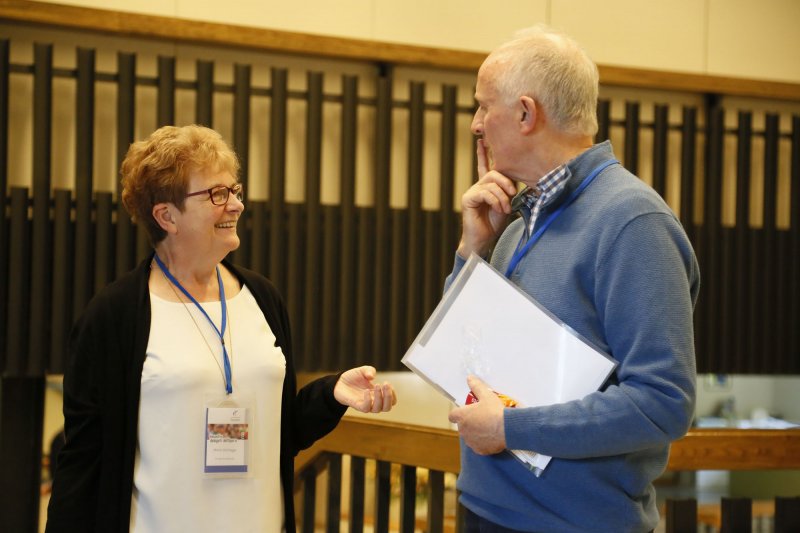
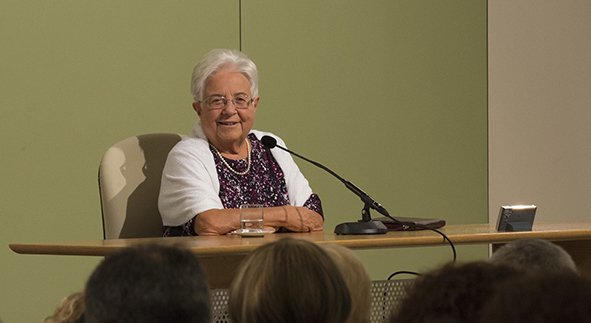 It was the first time that this international meeting was held in three installments for: the Americas and Oceania; Asia, Africa and the Middle East; and Europe. The gatherings were held one after the other and were attended by the delegates of the zone, people who are following than one nation or territory and some councilors. Some 90 people attended each gathering, men and women representing numerous communities that are working at promoting the spirit of unity around the world. They were welcomed by Focolare president Maria Voce who expressed gratitude to God for this harvest event and the life that has been generated by the charism of Chiara Lubich. She also introduced the spiritual theme for the year ahead: the mystery of Jesus Forsaken as the Key to Unity. “Jesus came to the earth,” she recalled, “to take on all the sufferings of humanity and to ensure that with Him it would be possible to pass from Cross to Resurrection.”
It was the first time that this international meeting was held in three installments for: the Americas and Oceania; Asia, Africa and the Middle East; and Europe. The gatherings were held one after the other and were attended by the delegates of the zone, people who are following than one nation or territory and some councilors. Some 90 people attended each gathering, men and women representing numerous communities that are working at promoting the spirit of unity around the world. They were welcomed by Focolare president Maria Voce who expressed gratitude to God for this harvest event and the life that has been generated by the charism of Chiara Lubich. She also introduced the spiritual theme for the year ahead: the mystery of Jesus Forsaken as the Key to Unity. “Jesus came to the earth,” she recalled, “to take on all the sufferings of humanity and to ensure that with Him it would be possible to pass from Cross to Resurrection.” 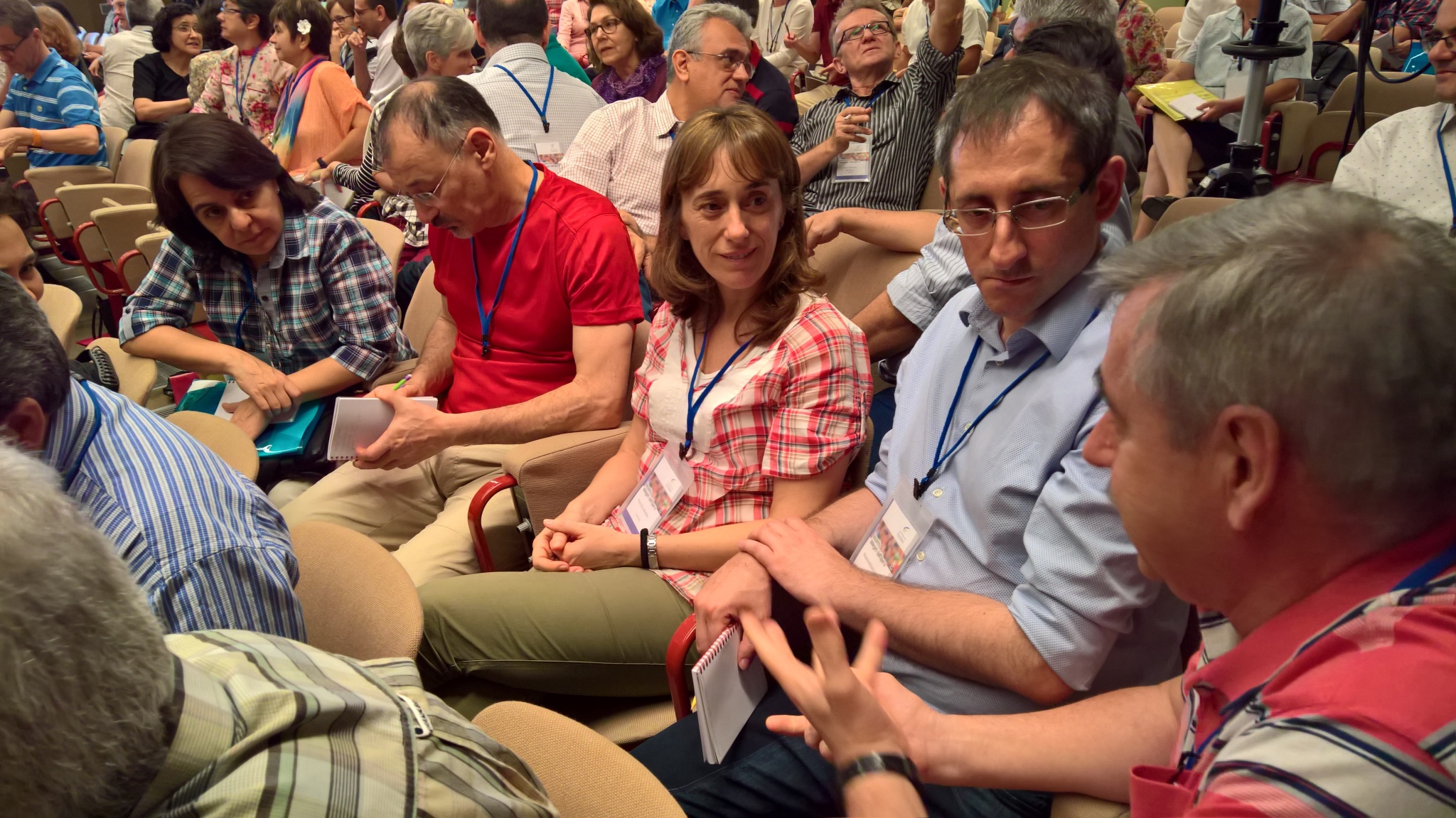 There was much sharing during the three days of intense work. It began with a discussion on the needs of young people in today’s world in the Americas and Oceania with its social and technological development but left with many spiritual needs. Other regions seemed to be in need of strategies for nurturing true values. “But it was not a matter of figuring things out sitting around a conference table,” Ray Asprer explained, “but of developing an awareness that the Holy Spirit will suggest what today’s society needs to get from the charism of unity.” “In Oceania,” Vania Cheng added, “we need to get closer to the Aboriginal populations and face up to the challenge of secularization. From there we can move on to bravely sowing the seeds of the Gospel that spread on their own.” “Even though there are many challenges,” said Gabriela Melo from Latin America, “our communities live communion and reciprocity. And this grows the faith that a united world is not a utopia.”
There was much sharing during the three days of intense work. It began with a discussion on the needs of young people in today’s world in the Americas and Oceania with its social and technological development but left with many spiritual needs. Other regions seemed to be in need of strategies for nurturing true values. “But it was not a matter of figuring things out sitting around a conference table,” Ray Asprer explained, “but of developing an awareness that the Holy Spirit will suggest what today’s society needs to get from the charism of unity.” “In Oceania,” Vania Cheng added, “we need to get closer to the Aboriginal populations and face up to the challenge of secularization. From there we can move on to bravely sowing the seeds of the Gospel that spread on their own.” “Even though there are many challenges,” said Gabriela Melo from Latin America, “our communities live communion and reciprocity. And this grows the faith that a united world is not a utopia.” 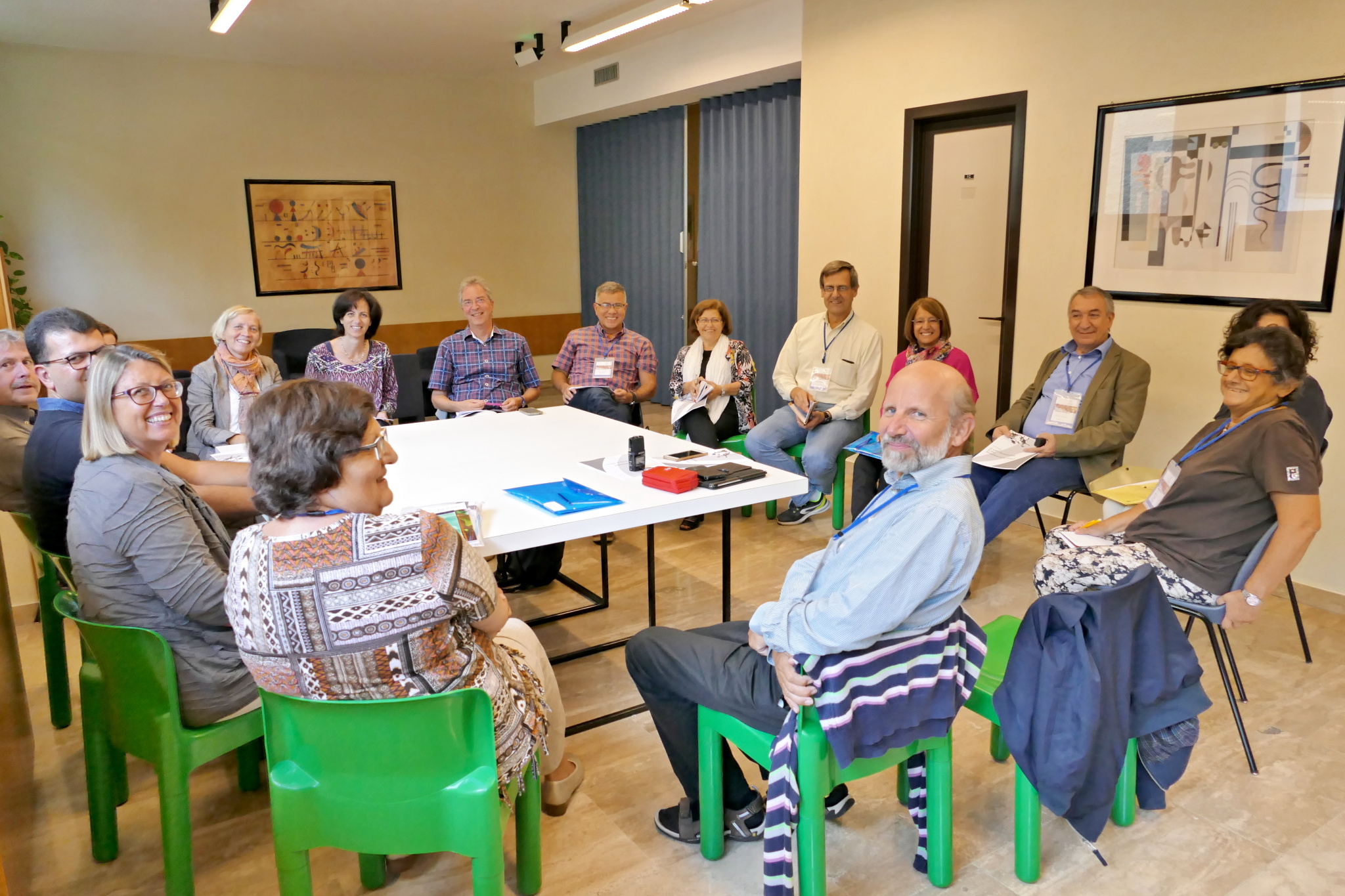 The gathering among the three major regions of Africa, Asia and the Middle East was quite significant, each with its own particular problems, especially the Middle East where they are going through a drama that seems to have no answers. Precisely in the region where Jesus lived and died, it is necessary to not only support the people, but also defend the “culture of the Resurrection.” “Regarding Africa,” Joseph Assouad remarked, “the great value of inculturation was highlighted. These peoples have long been on the journey towards Truth, and we must not go there thinking that we are starting from zero!” Roberto Catalano spoke about the Asian continent, saying that it had much to offer the world regarding social and political life. He also underscored the importance of interreligious dialogue in the Asian region and the contribution offered by the Focolare School of the Great Religions in Philippines.
The gathering among the three major regions of Africa, Asia and the Middle East was quite significant, each with its own particular problems, especially the Middle East where they are going through a drama that seems to have no answers. Precisely in the region where Jesus lived and died, it is necessary to not only support the people, but also defend the “culture of the Resurrection.” “Regarding Africa,” Joseph Assouad remarked, “the great value of inculturation was highlighted. These peoples have long been on the journey towards Truth, and we must not go there thinking that we are starting from zero!” Roberto Catalano spoke about the Asian continent, saying that it had much to offer the world regarding social and political life. He also underscored the importance of interreligious dialogue in the Asian region and the contribution offered by the Focolare School of the Great Religions in Philippines.  Finally, there was Europe, from Siberia to Portugal. The world is waiting for unity from this continent, human and spiritual values, an ability to dialogue especially with Islam which is coming more and more into view in so many regions. Severin Schmit stated: “Above all, the world is waiting for Europe to find a dignified solution for the refugees.” The challenges are many: secularization, Relativism and the new generations. They deserve answers and proposals that are the result of communion amongst the geographic regions of the continent. “These problems,” Margherita Karram said, “have stimulated growth, motivation and greater creativity, building a network among many people in Italy, for example, where they have taken action in welcoming.” Many new insights and answers emerged from the meetings and much motivation. Everyone left certain of the need to trust and be open to others as Pope Francis suggests, because this will open new and unimagined paths. Focolare co-president, Jesús Morán, recalled: “Jesus told Mary Magdalene to go and inform her brothers and sisters that He would go before them to Galilee. What is Galilee? Galilee is the world outside the Holy City, outside the walls of Jerusalem, outside the walls where Jesus died. It’s the world. Jesus goes before us there, he speaks to us there – in the world.”
Finally, there was Europe, from Siberia to Portugal. The world is waiting for unity from this continent, human and spiritual values, an ability to dialogue especially with Islam which is coming more and more into view in so many regions. Severin Schmit stated: “Above all, the world is waiting for Europe to find a dignified solution for the refugees.” The challenges are many: secularization, Relativism and the new generations. They deserve answers and proposals that are the result of communion amongst the geographic regions of the continent. “These problems,” Margherita Karram said, “have stimulated growth, motivation and greater creativity, building a network among many people in Italy, for example, where they have taken action in welcoming.” Many new insights and answers emerged from the meetings and much motivation. Everyone left certain of the need to trust and be open to others as Pope Francis suggests, because this will open new and unimagined paths. Focolare co-president, Jesús Morán, recalled: “Jesus told Mary Magdalene to go and inform her brothers and sisters that He would go before them to Galilee. What is Galilee? Galilee is the world outside the Holy City, outside the walls of Jerusalem, outside the walls where Jesus died. It’s the world. Jesus goes before us there, he speaks to us there – in the world.”

 In jail “I had some problems with this guy and both of us ended up in jail. We were enemies and there was no room for any understanding between us. But when I learned a bit more about Jesus’s teaching on love, I thought about this ‘enemy’ of mine. How could I love him? The thought came to my mind that I could share some of the food that my family brings to me, because none of his family members ever brought food to him. We’re good friends now. Another experience regards the only food container I owned. It was stolen from me and I knew who did it. I went to that person, but he refused to give it back. I didn’t know what to do. I went back to my cell and read the Gospel which is always my point of reference now. I came across the New Commandment. There’s the answer! Right away with all my heart I decided to never think about that food container again. Loving is more important.” (D. J. – Nigeria) The Coffee Maker “We all use the coffee maker at work, but no one ever cleans it and sets it up again. They’re used to having me do that. One day one of my colleagues approached me after a cup of coffee. She asked why I was always so benevolent towards others. I told her it wasn’t so much trouble and that I was the only one who could do it for them. She answered: ‘You’re telling me something important. I always complain that my husband leaves a mess after himself and I should rather begin to do what he doesn’t.’ From then on there was a higher atmosphere at work.” (R. C. – Spain) That son we didn’t know “We were always able to talk and offer moral support to our first son. But with his brother who had a strong character it had always been difficult. Having a teenage boy who didn’t want to communicate created a bad feeling in all of us. Then, he didn’t try at school and teachers were always complaining. My husband and I looked for a common way for us to reach our son. We encouraged each other in loving him as he was, always highlighting his positive qualities even though he seemed like someone we didn’t know. Meanwhile we continued to pray and to knock on Heaven’s door so that God might guide us in the difficult task of parenting. Then came an idea: change school. It worked! Ever since then our son has changed in a positive way. He’s always willing to help out in the house. He’s doing quite well in school and has gone back to church. We’re all enjoying a breath of fresh air.” (B.S. – Switzerland)
In jail “I had some problems with this guy and both of us ended up in jail. We were enemies and there was no room for any understanding between us. But when I learned a bit more about Jesus’s teaching on love, I thought about this ‘enemy’ of mine. How could I love him? The thought came to my mind that I could share some of the food that my family brings to me, because none of his family members ever brought food to him. We’re good friends now. Another experience regards the only food container I owned. It was stolen from me and I knew who did it. I went to that person, but he refused to give it back. I didn’t know what to do. I went back to my cell and read the Gospel which is always my point of reference now. I came across the New Commandment. There’s the answer! Right away with all my heart I decided to never think about that food container again. Loving is more important.” (D. J. – Nigeria) The Coffee Maker “We all use the coffee maker at work, but no one ever cleans it and sets it up again. They’re used to having me do that. One day one of my colleagues approached me after a cup of coffee. She asked why I was always so benevolent towards others. I told her it wasn’t so much trouble and that I was the only one who could do it for them. She answered: ‘You’re telling me something important. I always complain that my husband leaves a mess after himself and I should rather begin to do what he doesn’t.’ From then on there was a higher atmosphere at work.” (R. C. – Spain) That son we didn’t know “We were always able to talk and offer moral support to our first son. But with his brother who had a strong character it had always been difficult. Having a teenage boy who didn’t want to communicate created a bad feeling in all of us. Then, he didn’t try at school and teachers were always complaining. My husband and I looked for a common way for us to reach our son. We encouraged each other in loving him as he was, always highlighting his positive qualities even though he seemed like someone we didn’t know. Meanwhile we continued to pray and to knock on Heaven’s door so that God might guide us in the difficult task of parenting. Then came an idea: change school. It worked! Ever since then our son has changed in a positive way. He’s always willing to help out in the house. He’s doing quite well in school and has gone back to church. We’re all enjoying a breath of fresh air.” (B.S. – Switzerland)
https://www.focolare.org/gb/files/2016/10/2016-11.mp3
We can learn Paul’s secret. We can do all things when we discover the constant presence of Jesus in our lives and work in partnership with him. There are moments when we feel happy, full of strength and everything seems light and easy. At other times we are afflicted by difficulties that make our days bitter. These can be the result of tiny failures in loving the people around us or our inability to share our ideal of life with others. Or we can be hit by illness, money troubles, family problems, inner doubts or trials, loss of work, the effects of war, which crush us and seem to have no let-up. What is especially burdensome in these things is feeling ourselves forced to face the trials of life alone, without support from someone who can give us the crucial help we need. Few people like Paul have experienced such intense joys and pain, successes and lack of understanding. And yet confronting all risks he managed to carry on with his mission, without giving in to discouragement. Was he a superhero? No, he felt himself weak, fragile, inadequate, but he had a secret, one he shared with his friends in Philippi: ‘I can do all things through him who strengthens me.’ In his own life he had discovered the constant presence of Jesus. Even when everyone had forsaken him, Paul did not feel alone. Jesus stayed close by. He it was who gave Paul security and urged him to go on, to face every hardship. Paul’s secret could be ours too. I can do all things when I too recognize and welcome in my pain the mysterious closeness of Jesus who almost identifies himself with my suffering, taking it upon himself. I can do all things when I live in a communion of love with others, because He comes into our midst, just as he promised (see Mt 18:20), and I am supported by the strength of unity. I can do all things when I welcome and put into practice the words of the Gospel; they make me perceive the road I am called to follow day by day, teaching me how to live and giving me confidence. I will have the strength to face not only my personal trials, or those of my family, but also those of the world around me. So appalling are the problems of society and the nations, that this could seem naïve, something utopic, and yet it is true that ‘all things’ are possible for us with the presence of the Omnipotent – ‘all things’ and only things, that are the good which He, in his merciful love, has decided for me and for others through me. And if these things do not come about immediately, we can carry on believing and hoping in God’s plan of love that spans eternity and will be fulfilled anyway. All we have to do is work in ‘partnership’, as Chiara Lubich taught: ‘“This may be a case when I can do nothing for that person who is sick or in danger, or for that complicated situation… Well then, I will do what God wants of me in this moment: study well, sweep well, pray well, take care of my children well… And God will see to the untangling of that knot, comforting the one who is suffering, sorting out that unexpected event.” It is a work in a partnership of perfect communion, which demands from us great faith in God’s love for his children and which makes it possible, through our action, for God himself to have trust in us. This mutual confidence works miracles. We will see that what we could not do, Someone else has done, and has done it far better than us.’1
Fabio Ciardi
1 Chiara Lubich, Yes Yes No No (London: New City, 1977), pp. 113-14 (translation revised). for ages 4-8 | for ages 9-14 | for ages 15-17 | MP3 Audio
Notifications